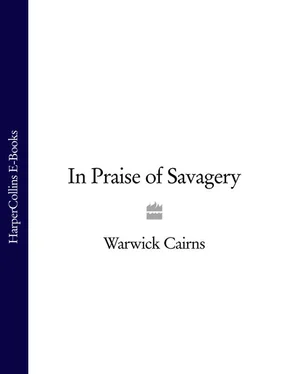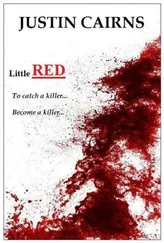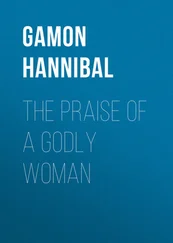WARWICK CAIRNS
In Praise of Savagery
For Susan
Tho’ it were ten thousand mile.
Yet they were a cheerful, happy people despite the incessant killing, and certainly not afflicted by the boredom which weighs so heavily today on our own young urban civilization.
Wilfred Thesiger, 1934
Title Page WARWICK CAIRNS In Praise of Savagery
A Man Between Two Worlds
Cheques and Balances
Sultan of Aussa
Harlow New Town
The Emperor’s Gift
Don’t Tell Others
The Clinic
Preparations
The Awash Station
Aeroflot
Raiders of the Dressing-up Box
You Can Run But You Can’t Hide
An Interrupted Journey
The River-Plain of Bahdu
A Letter
To the North
Kibiriti
Upon the Etiquette of Massacre
Preparations
The Worst Restaurant in the World
Addis Ababa
Chukana is Indisposed
The Water-Song and the Camel-Men
Upon Human Nature, and Goats
A Question of Responsibility
The Great Explorer
A Blessing
The Hangadaala Takes a Walk
Deep Water
In the Midday Sun
A Collective Decision
Built for Miserable Weather
The Wells at Intahe
Four Days at Gewani
Elsewhere
Incidents on the Slopes of Mount Kulal
Upon Sleep, Pleasure and Duty
Into Hostile Territory
Telling the Sheep from the Goats
The Silver Baton of Command
Playing British Bulldog for a Bride
The Sultan’s Vizier
A Magnificent Bearded Loon
A Fish Supper
The Still Point of the Turning World
A Surfeit of Shoes
The Giving and Receiving of Gifts
The Anticipation of Fruit
Through the Land of Aussa
The Oasis
Fulfilment’s Desolate Attic
Back to Maralal
Civilisation
The Years in Between
The Old Man, Up There
Life
To the Modern World
What Is Your Tribe?
Our Dead Through Whom We Live
Acknowledgements
About the Author
Also by Warwick Cairns
Copyright
About the Publisher
This was a man, you’ll understand, who had killed—who had personally killed, as it were—so many people, over the years, that he’d lost count. Or rather, a man who’d killed so many people that he’d not even bothered to keep count in the first place. Not that he’d have been able to keep count, as it happens, even if he’d wanted to, what with the darkness, and the adrenaline-rush, and the pandemonium and the screaming, and the roar of the engines and all, and who could blame him for not keeping, for not being able to keep, an accurate tally?
Not me, I’m sure.
‘What we did, you see,’ he said, ‘what we did was to park the Jeep. Park it behind a sand-dune or under some trees or bushes or scrub, if we found some, and then we’d cover it up with branches. Camouflage it, you understand. And then we’d wait.’
He eyed up my glass.
I’d not drunk anything yet.
‘Cheers,’ I said.
There was a sword hanging on the wall.
It was a golden sword, a great curved thing, sheathed in heavy gold, all carved and tooled and etched about, and encrusted with rubies and sapphires, and it hung from an elaborately wrought chain beside the fireplace. It was a bit of a monster, if the truth be told; like something that you’d see the pot-bellied genie carrying in an over-the-top am-dram production of Ali Baba , tucked into the sash holding up his pantaloons. And it is, I suppose, possible—just possible—that it was simply that: a theatrical prop, all gilt and paste, something that he’d picked up from a fancy-dress-hire shop on a whim, perhaps, as an amusing quelque-chose . Somehow I doubt it, though. He really wasn’t the type.
I took a big sip from the glass.
‘Delicious,’ I said.
And, indeed, it would have been delicious, if I’d actually liked sherry in any shape or form. It would have been more than delicious, even, if I’d liked thick, dark ‘cooking sherry’ of the kind that your grandmother, perhaps, used to serve up to your parents at Christmas. But I didn’t, as it happens, and don’t, and never have.
It’s not just sherry, either, but alcohol generally.
I don’t know what it is about it, or about me, but I’ve never been able to get on with any of it. I just don’t like the taste of it, I suppose. Sweet drinks I can sort of take, in small doses, liqueurs and the like, and advocaat; but even then I find myself wishing I’d had a glass of Coke or something, after a few sips.
‘I’ve never been a great lover of Jeeps,’ he continued, ‘or any motor-car for that matter. The internal combustion engine has driven all of the silence out of the world.’
A clock ticked on the mantelpiece.
‘It has brought nothing but noise and misery and dissatisfaction,’ he said. ‘I couldn’t drive when I joined the Unit—did you know that? Couldn’t drive at all. Didn’t know where to put the key to start the engine. Didn’t even know which way to turn a spanner to unscrew a wheel-nut. That amused the others no end. Now, with an animal—with a horse, say, or with a camel—well, you know where you are with them; and at least when they go wrong you can always eat them, if all else fails. But motorcars, no—they’ve never been my thing. But in the desert, when we found a camp we’d park our car, and hide it, and we’d wait until it got dark. And then we’d watch the lights in the tents until they went out, and we’d give them time to get off to sleep properly. Then, when it was all quiet, we’d jump into the car—me in the back with the machine-gun, driver up front, and we’d drive right through the middle of their camp and I’d blast away at the tents on both sides, and we’d be off before they knew what hit them.’
Shelley Court, Tite Street, Chelsea. The London home of Major Sir Wilfred Patrick Thesiger, KBE, DSO, honorary fellow of Magdalen College, Oxford, and holder of the Star of Ethiopia (Third Class).
He was a mountain of a man, Thesiger, even then, for all his eighty years, in his antique tweed three-piece suit with his pocket-watch on a chain and his handmade shoes; and he was a man who, in his lifetime, had done and seen extraordinary things.
In the dying days of the age when there were still blank spaces on the world’s maps, and when there were still places from which no traveller had ever returned, he had set off into unexplored lands and crossed the territories of savage and murderous tribes, against all advice and in defiance of all reasonable expectation of survival, and yet he had lived to tell the tale.
In the years of war, he had led the small battalion that captured the Italian garrison of Agibar and all its 2,500 troops; and later, with the SAS in the Western Desert, when almost all of his unit had been captured or killed, he had gone in pursuit of Rommel’s Afrika Korps, tanks and all, and had narrowly escaped being captured by the Field-Marshal himself.
In the years after, when others went back to their lives and families, he had sought out wild and comfortless places, living and travelling with the Bedouin of Arabia, with whom he crossed the ‘uncrossable’ sands of the Rub’ al Khali, or Empty Quarter, hovering on the brink of death from lack of food and water.
Читать дальше












